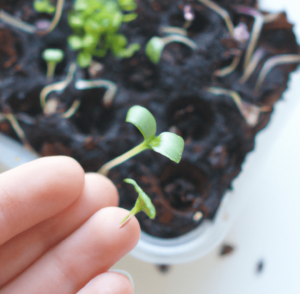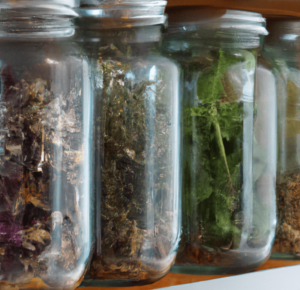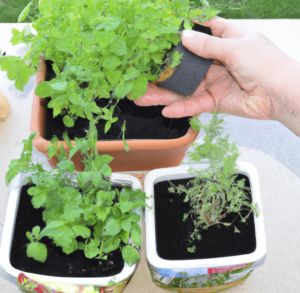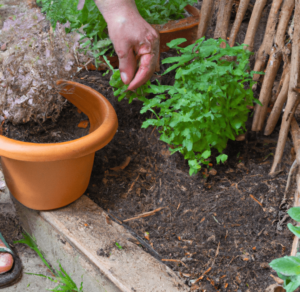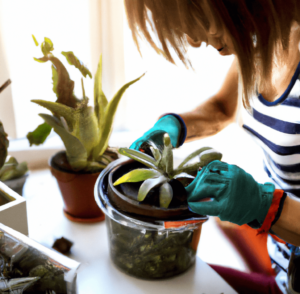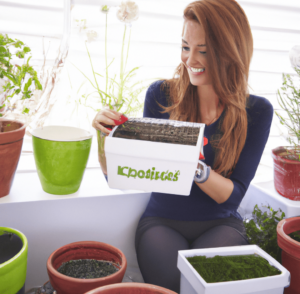Back to Eden gardening is a unique and sustainable method of gardening that focuses on imitating the natural ecosystem of the forest to grow healthy and abundant plants. This method of gardening involves using wood chips, mulch, and other natural materials to cover the ground, allowing plants to grow without the need for tilling or other labor-intensive techniques.
In a back to Eden garden, the ground is covered with a layer of mulch, which helps to retain moisture and suppress weeds. This allows the plants to grow without the need for frequent watering or weeding. The mulch also helps to add nutrients to the soil, allowing plants to grow and thrive in a natural and sustainable way.
The key to successful back to Eden gardening is to create a healthy and balanced ecosystem for your plants. This means choosing the right plants for your garden, providing them with the right amount of sunlight and water, and allowing them to grow and interact with each other in a natural way. By following these principles, you can create a beautiful and productive garden that is both sustainable and healthy for the environment.

Method of Back to Eden Gardening
Back to Eden Gardening is the process of growing and cultivating plants. It involves preparing the ground for planting, watering the plants, and caring for them so that they can grow and thrive.
One way to prepare the ground for planting is to till the soil. This can be done by hand with a shovel or hoe, or with a machine such as a tiller. This helps to loosen the soil and make it easier for roots to grow.
Once the ground is prepared, it’s time to plant the seeds or seedlings. This can be done by digging holes in the ground and carefully placing the seeds or seedlings into the holes. The plants should be spaced out according to their specific needs, as different plants require different amounts of space to grow properly.
Once the plants are in the ground, they will need regular watering to keep them healthy. This can be done with a watering can or a hose, and the amount of water needed will vary depending on the type of plants being grown and the weather conditions. In general, it’s important to water plants deeply and evenly, and to avoid overwatering, which can cause the plants to rot.
Nature can also play a role in gardening. For example, natural rainfall can provide water for the plants, and the sun can provide warmth and light for photosynthesis. In addition, natural predators such as insects can help to control pests that can harm the plants.
Overall, gardening involves a combination of careful preparation, regular maintenance, and working with nature to help plants grow and thrive.
Back to Eden Gardening: Growing in Compost
Composting is a natural process that turns organic waste, such as food scraps and yard waste, into a rich, soil-like material called compost. By adding compost to your soil, you can improve its structure, water-holding capacity, and nutrient content, making it a great growing medium for plants.
If you’re new to gardening, learning how to compost is a great place to start. Composting is a simple and effective way to reduce waste and help the environment, while also providing your plants with the nutrients they need to thrive.
To get started with composting, you’ll need a compost bin or pile, a source of organic material, and some basic tools and supplies. You’ll also need to understand the basics of composting, including what materials to add to your compost, how to maintain the right balance of moisture and oxygen, and how to turn and aerate your compost to speed up the decomposition process.
Once you have your compost bin or pile set up, you can start adding organic material to it. This can include food scraps, coffee grounds, eggshells, yard waste, and other organic materials. As your compost decomposes, it will release heat and moisture, which will help to break down the organic matter and create rich, nutrient-dense compost.
Over time, your compost will mature and turn into a dark, crumbly, earthy-smelling material that’s perfect for enriching your soil and supporting healthy plant growth. Whether you’re a seasoned gardener or just starting out, composting is a fun and rewarding way to learn more about gardening and the natural world.

Seed Companies
Seed companies are businesses that specialize in the production and distribution of seeds for growing fruit, vegetables, and other plants. These seeds are used by gardeners, farmers, and agricultural professionals to grow food crops and other plants. Seed companies often offer a wide variety of seeds, including both common and rare varieties of fruits, vegetables, and other plants. Some seed companies also provide resources and information to help customers successfully grow and harvest their crops. In recent years, the growing interest in sustainable food production and home gardening has led to an increase in the popularity of seed companies and the products they offer.
Soil: Important Component in Back to Eden Gardening
Soil is an important component of the natural environment and is essential for the growth of plants. In Back to Eden gardening , soil quality can have a significant impact on the health and productivity of plants. Poor soil quality can result in stunted growth, reduced yields, and increased susceptibility to pests and diseases. On the other hand, good soil quality can support healthy plant growth and improve the overall appearance of a Back to Eden garden.
One way to improve soil quality is to add organic matter, such as compost or mulch. These materials help to improve the structure of the soil, making it more porous and better able to retain moisture and nutrients. Lumber, such as wood chips or sawdust, can also be used as a mulch to help regulate soil temperature and suppress weeds. By adding organic matter to the soil, gardeners can improve its quality and support the growth of healthy plants.
Mulch: A Gardener’s Best Friend
Mulch is a material that is spread on top of the soil in a Back to Eden garden. It can be made of organic materials such as leaves, straw, or bark, or it can be inorganic, such as plastic or gravel. In either case, mulch serves several important functions in gardening.
First, mulch helps to conserve soil moisture. By creating a barrier on top of the soil, mulch helps to prevent water from evaporating too quickly. This can be especially useful in dry climates or during times of drought.
Second, mulch helps to improve soil structure and fertility. As organic mulches break down over time, they add important nutrients to the soil, such as nitrogen and other minerals. This can help plants to grow more vigorously and produce better yields.
Third, mulch can help to suppress weeds. By blocking out sunlight, mulch can prevent weed seeds from germinating. This can save gardeners a lot of time and effort that would otherwise be spent pulling weeds.
In addition to these benefits, mulch can also add a decorative touch to a Back to Eden garden. Depending on the type of mulch used, it can provide a variety of different colors and textures, which can enhance the overall appearance of the garden.
Mulch can be applied in several different ways, depending on the specific needs of the garden. For example, it can be spread around individual plants, or it can be used to create a layer over a larger area. In either case, it is important to apply mulch in a thick enough layer to provide the desired benefits, but not so thick that it suffocates the plants.
Composting is another way to create organic mulch for a garden. By composting yard waste and other organic materials, gardeners can create a nutrient-rich mulch that is perfect for growing healthy plants. Composting is also a great way to reduce waste and help the environment.
Compost in Gardening
Compost is an organic matter that is added to soil to help plants grow. It is made from decomposed materials, such as leaves, grass clippings, and vegetable peels, that are rich in nutrients. Compost can be made at home by mixing these materials together in a compost bin, or it can be purchased at a gardening store.
When added to the ground, compost acts as a natural fertilizer for plants. It helps to improve the soil structure, retain moisture, and provide essential nutrients for plant growth. Compost can also be used as a mulch, which is a layer of material placed on the surface of the soil to help prevent weeds from growing and to retain moisture.
Compost can be made from a wide variety of materials, including yard waste, food waste, and even shredded lumber. By adding compost to your Back to Eden garden, you can improve the health of your plants and help them to grow more vigorously. Additionally, composting helps to reduce waste and can be an environmentally-friendly way to dispose of organic materials.
Bottom Line: Back to Eden Gardening is a Nature’s Way to Gardening Method
Back to Eden gardening is a method of organic gardening that involves using wood chips as a mulch to cover the soil around plants. This technique is based on the idea that a layer of mulch will mimic the natural forest floor, providing plants with the nutrients and protection they need to thrive. Back to Eden gardening can help to reduce weeds, improve soil quality, and conserve water. It is often used in conjunction with other organic gardening techniques, such as companion planting and permaculture.
If you’re interested in Back to Eden gardening, you may also be interested in aquaponics gardening and biodynamic gardening.


